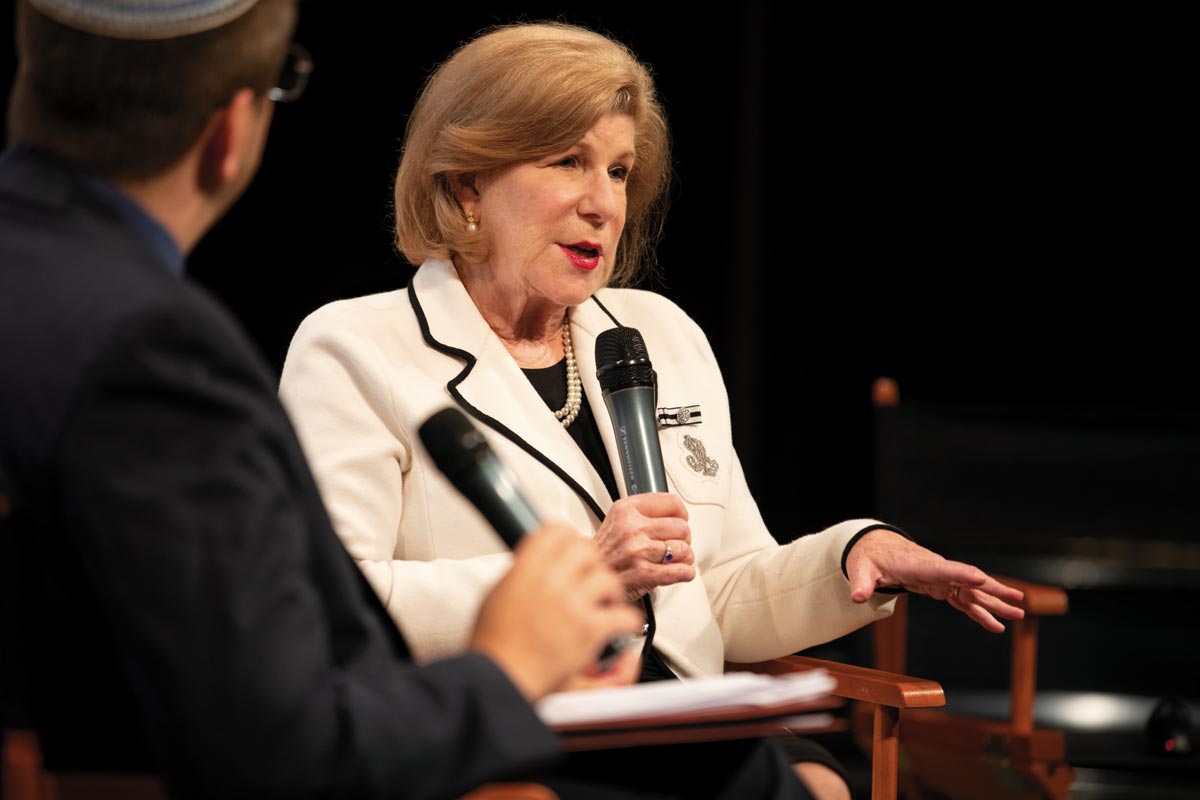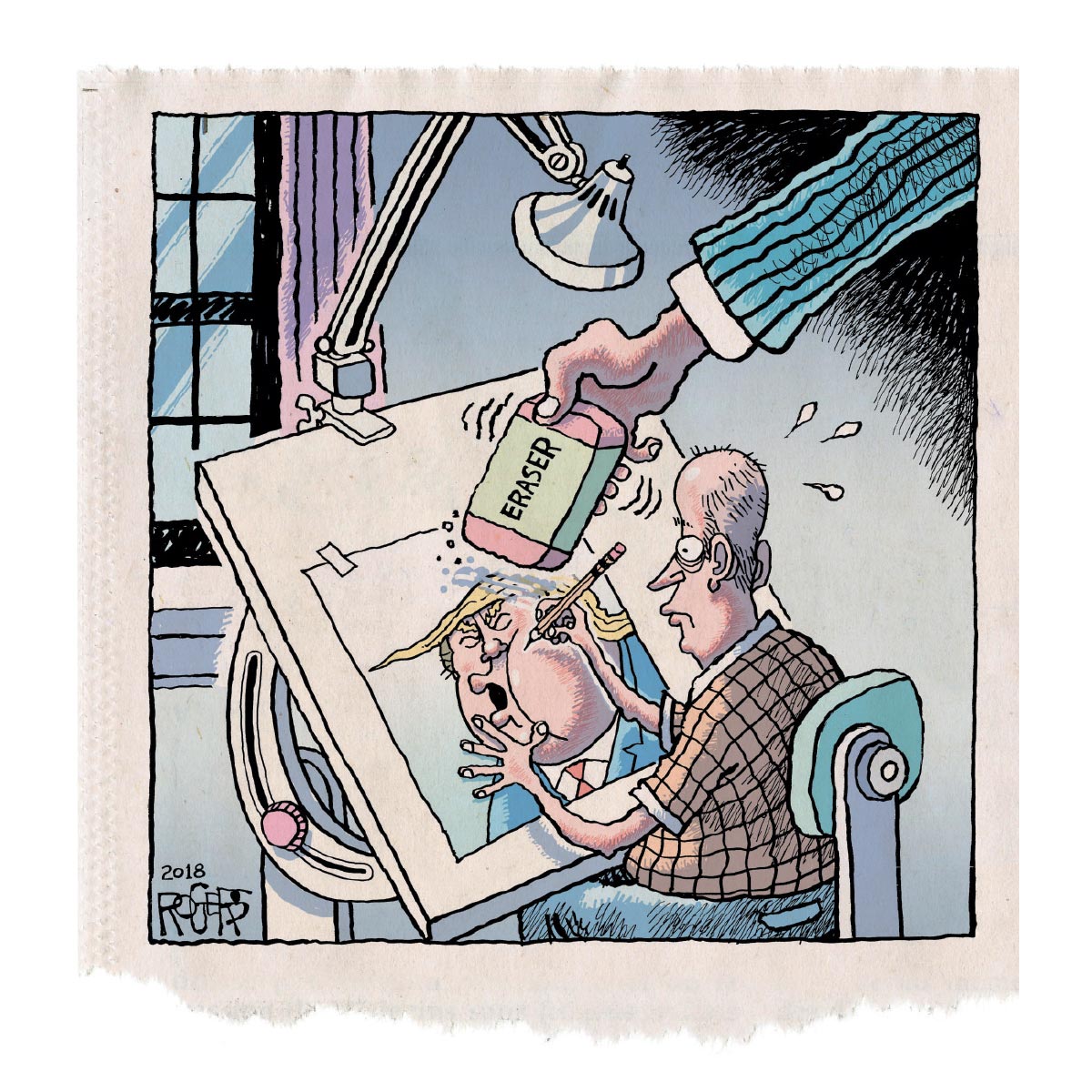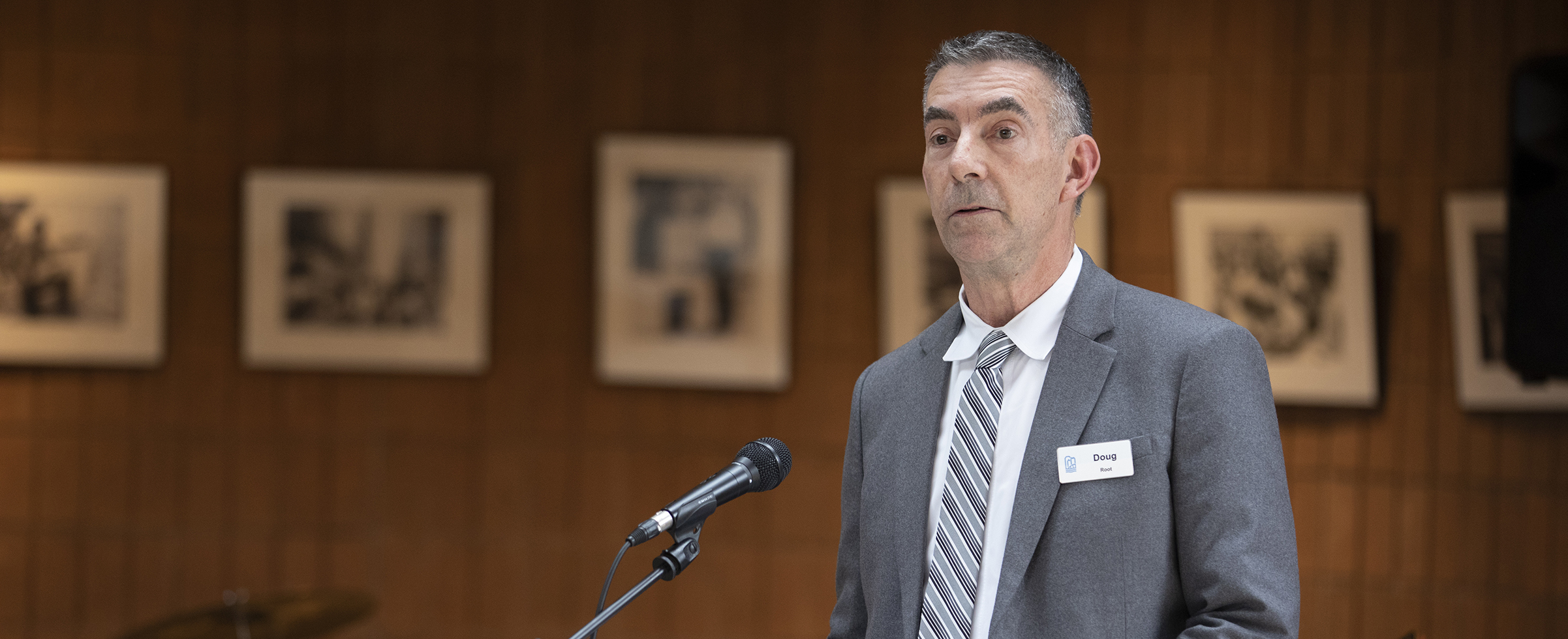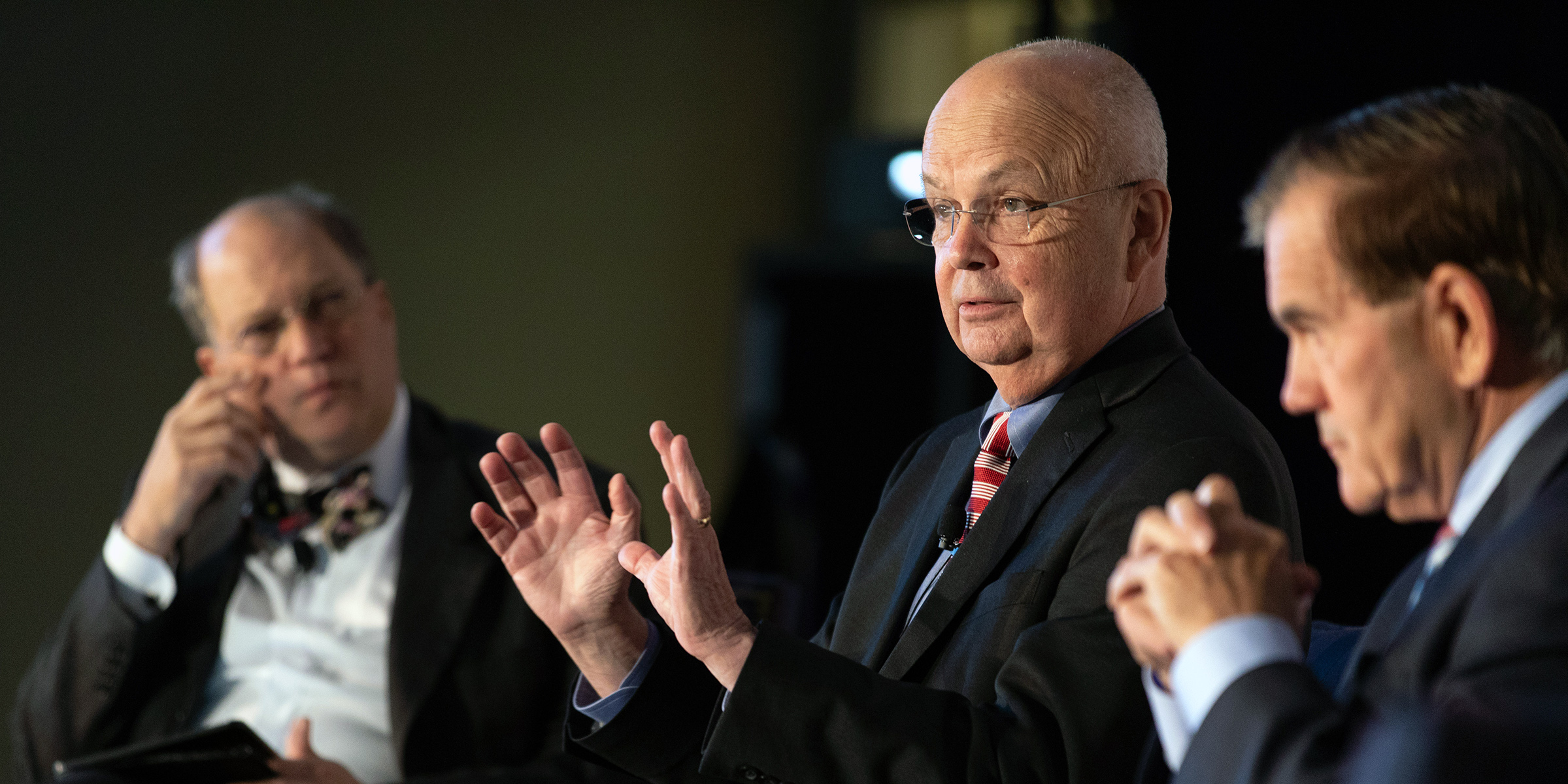
Last year, two Pittsburgh Foundation–led conferences commanded public attention on threats to fundamental American freedoms. This year, local and national programs are expanding remedies from convention halls to town halls, libraries and community centers.
IN THE LAST TWO YEARS of his Pittsburgh Foundation presidency, Maxwell King was shocked at the degree to which appreciation for fundamental American values had eroded — a poisonous outcome, he believes, of one of the most politically and ideologically divisive periods in the country’s history. He took action.
Determined to make Pittsburgh the staging ground for reawakening appreciation for basic freedoms and protecting civic democracy, King’s final public initiative as president came last year in developing and convening two conferences focused on galvanizing public attention on First Amendment rights in the U.S. Constitution — freedoms of religion, expression, the press, public assembly and government petition.
“As a community foundation, our way forward must be to convert today’s heat into tomorrow’s light,” says King, “and accomplishing that involves long-term educational initiatives.”
He sees the community foundation mission of improving quality of life as doomed without the underpinning of democratic institutions. And the strength of those institutions, he says, depends on “an enlightened, activist and educated citizenry.” That conviction led to the Foundation partnering with Duquesne University to present the second conference on its campus in October 2018.
Duquesne President Ken Gormley, a constitutional law expert who moderated some of the conference sessions, argued in his opening address that the antidote to the toxic partisanship and political divisiveness rending the country is “… rallying around principles that unite us. And what better… than those that come first in the Bill of Rights, expressed in a succinct, 45-word promise?”
Given the raging divisiveness in the months leading up to the 2018 election, “the timing of the conferences was prescient,” says Dr. Jeanne Pearlman, senior vice president for Program and Policy at the Foundation. The first event in June, which she designed in collaboration with a committee of national subject matter experts, focused on how local communities can counter threats to First Amendment freedoms. That conference was co-presented with The Heinz Endowments, another regionally focused foundation, and Media Impact Funders, a network that informs, engages and inspires. Activities were held at Pittsburgh Creative and Performing Arts High School (CAPA) and the August Wilson African American Cultural Center, both in downtown Pittsburgh. The Duquesne conference focused on the essential nature of the First Amendment across the political and ideological landscape.

The need for community responses, says Pearlman, was urgent. In recent years, most school districts have eliminated civics classes from middle school and high school curricula. The result, she says: People in the nation are unfamiliar or misinformed about their rights; they are fearful of freely speaking their truth; those of faith are understandably afraid to worship in public for fear of violence; and people who work for news organizations find themselves under attack.
“The community foundation, through these conferences, was using its convening power to invigorate communities to respond and inspire leaders to act,” says Pearlman. And they have.
In addition to the second phase of the Change Agents in Education: Youth and Social Justice program, funded programs include:
IN THE LIBRARIES
The Pittsburgh Foundation, in partnership with Carnegie Library of Pittsburgh, has developed a year’s worth of programming about the First Amendment, including a public lecture series to bring the ideas about the five fundamental freedoms directly into neighborhoods by way of the public learning spaces in local libraries.
IN THE CONFERENCE HALLS
On Sept. 23, the Jewish Community Center’s Center for Loving Kindness sponsored by way of Pittsburgh Foundation funding “The First Amendment for the 21st Century: A Conference in Squirrel Hill about Our Nation’s Tensions with Freedom of Religion.” Rabbi Ronald B. B. Symons, senior director of Jewish Life at the JCC, says the purpose is “to better understand the friction between those who want to protect their own religious stance as opposed to those who would have a pluralistic understanding.”
Featured speakers were Nina Totenberg, NPR’s legal affairs correspondent, and Michael W. McConnell, Mallery Professor and director of the Constitutional Law Center at Stanford Law School.
ONLINE
The National Constitution Center and its president and CEO, Jeffrey Rosen, played important roles in the second conference at Duquesne and have since reinforced the Center’s commitment to education about the First Amendment. In its five-part #1AUSA podcast, the Center highlights key moments from the conference and encourages listeners to engage with the Center’s “We the People” weekly podcasts, available at constitutioncenter.org.
“The podcasts are timely lessons about a living document,” says King and offer timely and informative debates from the only institution in America chartered by Congress to disseminate information about the U.S. Constitution in a non-partisan way.
King’s final initiative has turned out to be a new beginning, or, as he refers to it, a “revival-bolstering” of the First Amendment in our region. “It was time for the conference then,” says King.
“And it is time for new attention on protecting First Amendment freedoms now. We heard the call to action. The time for action — the need for results — is now.”
|
DRAWING A LINEA WEEK BEFORE THE JUNE 2018 GATHERING, Pittsburgh Post-Gazette editorial cartoonist Rob Rogers was fired after 25 years at the paper for cartoons that were, he said, “considered unflattering” to the current occupant of the White House. While Rogers’ firing is not an abridgment of the First Amendment — employers have the right to dismiss employees who for whatever reasons are not fulfilling expectations — his dismissal can be seen, and has been viewed — as having a chilling effect on free speech in journalism. Rogers was interviewed by Heinz Endowments President Grant Oliphant at the June conference. Rogers’ skills as a professional cartoonist are unquestioned. He was runner-up for the Pulitzer Prize in editorial cartooning for the work that resulted in his dismissal. The cliché, Rogers says, is apt: Political cartoonists are the canary in the coal mine of democracy. “We’re the first to go,” he says. “The fact that a community foundation was compelled to hold conferences about threats to the First Amendment, I think, says it all. It’s not just my cartooning colleagues who are in the coal mine,” he says, referring to journalists generally. “We are all canaries now.” |
Original story appeared in the 2018-19 Report to the Community.




